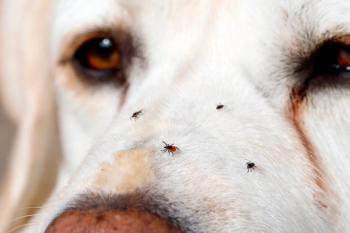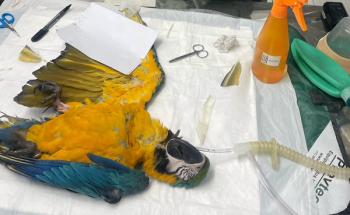
Tips for managing conjunctivitis

Rachel Allbaugh, DVM, MS, DACVO, explains her approach to managing conjunctivitis in dogs
Missed out on Fetch Kansas City 2024? No worries—we’ve got you covered! For just $199,
Ready to jump in? Start exploring the best of Fetch Kansas City 2024 On-Demand now!
Conjunctivitis is frequently presented to any veterinary practice. In an interview with dvm360 at the Fetch Kansas City Conference, in Kansas City, Missouri, Rachel Allbaugh, DVM, MS, DACVO, explained that it's one of the most common reasons that she receives consultation calls. She explained her typical approach to a case of conjunctivitis, stressed the importance of establishing a root cause, and a potential non-medicated method of treatment.
Below is a partial transcript
Rachel Allbaugh, DVM, MS, DACVO: A lot of people feel like, "Oh, dogs have allergies and they have conjunctivitis," and they want to treat them with something like Neo-Poly-Dex, which is antibiotics and steroids. But, the reality is, if dogs have conjunctivitis, first and foremost, [you should] do a complete eye exam. [You should] make sure that there's not another primary ocular cause, because that's usually what's causing a red eye in a dog. [Usually it's a] corneal ulcer, or dry eye disease, or some sort of conformation, or hair abnormality.
But truly, if you rule [all of] those things out, allergic conjunctivitis [does] happen, and it happens in a seasonal manner. My favorite treatment is not Neo-Poly-Dex, [I would rather have] owners apply a water-soluble lubricant to the eye before the dog goes outside. [They should then rinse] the eye with eye wash when [the dog] comes back in, because that way the [lubricant] will have coated the eye, preventing... all of those allergens [from entering] the immune system. The washing will rinse [the lubricant] away, kind of like taking a shower. Doing that even just once or twice a day during allergy season is a much better way for owners to manage these allergy issues, [in a way that is] non-medicated, [and] doesn't require a veterinary exam.
Newsletter
From exam room tips to practice management insights, get trusted veterinary news delivered straight to your inbox—subscribe to dvm360.






